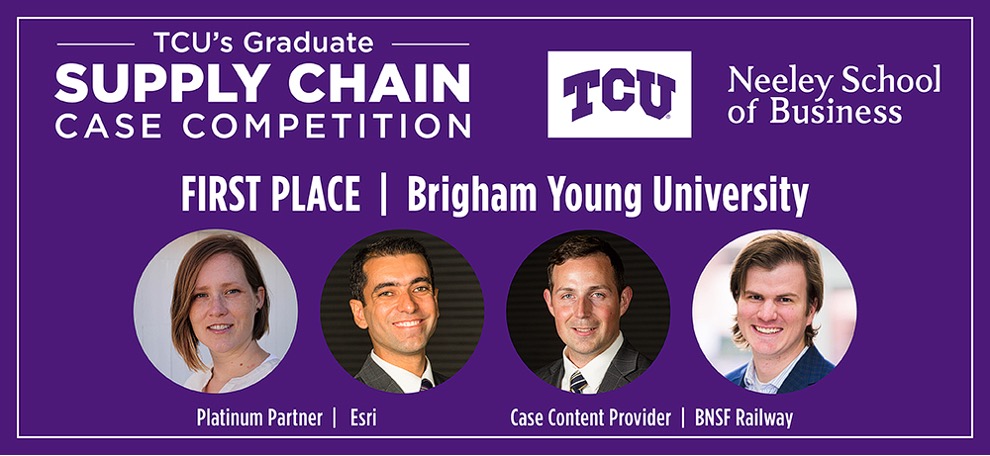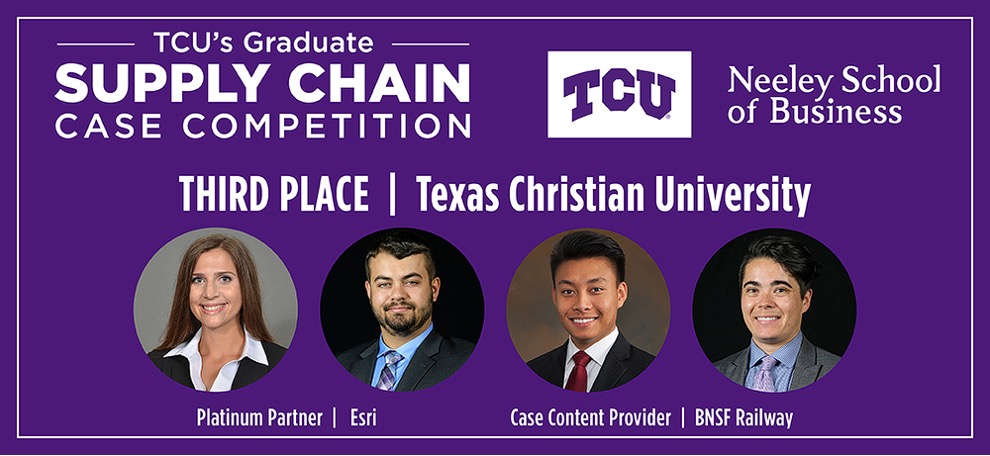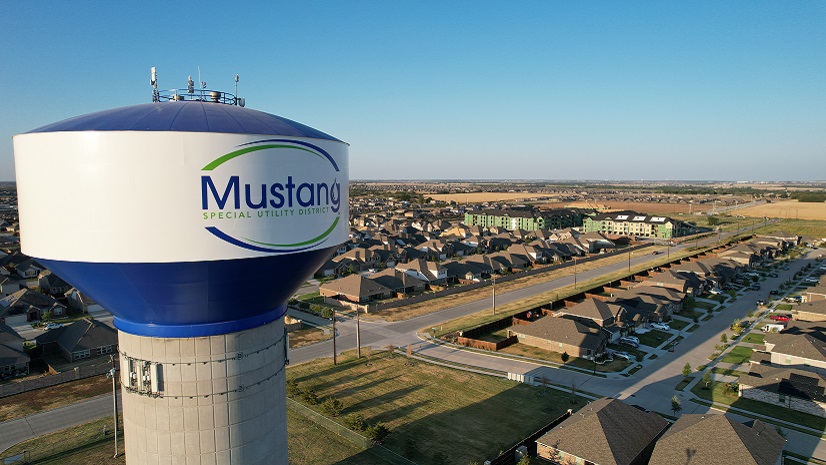Around the globe, across all industries, we are experiencing crippling weaknesses within supply chain and logistics operations. These vulnerabilities are related to increased severe-weather incidents due to climate change; growing network complexities in response to changing customer expectations and globalization; and other factors. A key contributor to the continued challenges is that within the supply chain and logistics arena, many organizations have not modernized their process, workforce, or technology to keep pace with market demands.
To inspire new generations of supply chain leaders to drive innovation in their career pursuits, the Texas Christian University (TCU) Neeley School of Business Center for Supply Chain Innovation (CSCI) hosts an annual case competition with industry and technology leaders. In the competition, top graduate supply chain programs tackle real-world problems and present recommendations to executives, who evaluate teams on the strength of their analyses and overall professional communications.
In February 2021, Esri sponsored the fifth annual TCU Supply Chain Case Competition. It featured an industry case challenge from BNSF, the nation’s largest Class rail operator, owned by Berkshire Hathaway and based in Fort Worth, Texas. The case was titled “Rolling into the Future—Strategically Planning for Growth and Capturing Customers in a Fast-Evolving Competitive Landscape.” It addressed the shifting pressures on supply chain operations providers to grow profitably while upholding the core values of the company within its community.
Eighteen teams competed in the intense, 24-hour challenge, working with Esri software to analyze and propose top strategic growth opportunities and new logistics center locations that would provide BNSF’s customers world-class rail and logistics services. A primary consideration was for teams to understand how network expansion could also reduce climate impact by doing the following:
- Quantifying market potential for solar and wind energy development projects
- Generating greater efficiencies in transporting ethanol for broader market adoption of clean energy
- Providing closer market access with rail services (thus reducing trucks’ carbon outputs) for infrastructure and residential construction materials in high-growth regions
Although the business challenge was tailored by BNSF, the use case could apply to most organizations across the business community.
View The Case Competition StoryMap

Highlights from the winning team for Logistics Center placement
Winning Team—Brigham Young University Marriott School of Business
Team Sponsor—Raising Cane’s Chicken

Brigham Young University (BYU) assessed and prioritized clean energy renewables as the market opportunity and determined San Marcos, Texas, as the top location for a new logistics center. The students’ in-depth analysis identified a 10-year housing boom due to high population growth and showed that new residential construction is a major factor in the demand for renewables, which has resulted in a revenue potential over 5 years that’s three times greater than that of the next contender, Jasper, Alabama. The BYU team analysis also estimated that the use of rail services for transporting construction materials would reduce carbon emissions by 60–75 percent versus sending the same shipments by truck.
Highlights from the Winner for Emerging Technology
Winning Team—Texas Christian University Neeley School of Business
Team Sponsor—Andrews Tool Company

The secondary aspect of the challenge asked the teams to research and recommend newly emerging technologies that would benefit BNSF operations and enhance the company’s offerings to its customers to maintain BNSF’s competitive advantage.
Tapping into industry intelligence from the Council of Supply Chain Management Professionals (CSCMP) as well as from Gartner, the TCU team provided a unique recommendation for a Real-Time Transportation Visibility Platform (RTTVP) offering. This innovative service offering enables corporate social responsibility (CSR) and the triple bottom line is customer-centric, a high priority for BNSF. The recommendation suggests substantial cost savings related to reduced downtime and increased network efficiencies through big data analytics (from data captured), as well as reducing carbon footprint through heightened awareness of carbon emissions.
This was my third opportunity to support the case development and judge in the championship round. The graduate students from all 18 schools exhibited such creativity and intelligence in addressing the challenge that I know the future has great potential for innovation and modernization to solve critical problems with regard to supply chain and logistics vulnerabilities.




